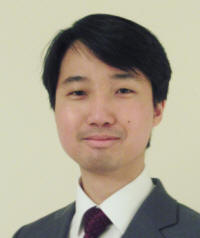Catholic Medical Quarterly Volume 69(4) November 2019
Editorial
The Tafida Raqeeb Case and the trouble with "Best Interests"
Michael Wee
 On the
3rd of October 2019, the High Court ruled that the parents of Tafida
Raqeeb — a five-year-old girl who had suffered a traumatic brain injury —
could take her to Italy for continued ventilation, despite UK doctors
thinking that further treatment would be futile. In some respects, though
certainly not in terms of the outcome, the case seemed very similar to
those of Charlie Gard and Alfie Evans. Many Catholics will therefore be
asking why Tafida's parents succeeded where those of Charlie and Alfie did
not.
On the
3rd of October 2019, the High Court ruled that the parents of Tafida
Raqeeb — a five-year-old girl who had suffered a traumatic brain injury —
could take her to Italy for continued ventilation, despite UK doctors
thinking that further treatment would be futile. In some respects, though
certainly not in terms of the outcome, the case seemed very similar to
those of Charlie Gard and Alfie Evans. Many Catholics will therefore be
asking why Tafida's parents succeeded where those of Charlie and Alfie did
not.
The first thing to note is that although Tafida's parents can now bring her to Italy, as is their wish, the fundamental legal principles on which such cases are decided have not really changed. The supposedly objective "best interests" test is still at the centre of the legal process, which does not give sufficient weight to the authority of parents as the prima facie decision-makers for their children.
As with the judges in Charlie's and Alfie's cases, the judge in Tafida's case also made reference to the deeply flawed medical guidance from the Royal College of Paediatrics and Child Health (RCPCH), which says that life-sustaining treatment may be withdrawn when a child cannot "enjoy the benefits that continued life brings". To think in this way is essentially to invite a judgement on the worthwhileness of life with disability. Nobody has the right to make that kind of judgement, which is a very different matter from judging the worthwhileness of treatment. Only the latter is ethically proper.
Therefore, though the outcome of this case is to be welcomed, Catholics
should be cautious about celebrating this judgement. Indeed, the outcome
went the way it did precisely because the judge was persuaded that there
is, in fact, continued benefit to be enjoyed by Tafida, and furthermore he
was satisfied that transporting her overseas would not present any harm.
(This was a crucial difference from Charlie's and Alfie's cases.) The
judge also noted that there is precedent within England for other children
in a
similar situation as Tafida to be kept alive on long-term
ventilation.
In relation to the question of continued benefit, the judge accepted that Tafida still has a minimal level of awareness and so would stand to gain from being cared for at home, which was still a possibility. The judge also recognised that the continuation of her life would be consistent with the religious and cultural tenets by which she was raised and "for which she had begun to demonstrate a basic affinity", and that this would be a benefit.
Although this sensitivity to religious factors is to be commended, the question about benefitting from continued life is ultimately the wrong question to ask. Life is not a possession or a commodity that we sometimes benefit from, and sometimes do not, in which case it no longer has value. On such a view, undue weight is placed on conscious experience and the pleasures that that may entail. One may not "enjoy the benefits of life" without consciousness, but life itself is always an intrinsic benefit. True, such a benefit may be very limited, but treatment may only be withdrawn if its burdens outweigh the benefits, which must include continued life.
One is reminded of the 2011 case, W v M and others the first ever case in English law concerning the withdrawal of artificial nutrition and hydration (ANH) from a patient in a minimally conscious state (MCS), as opposed to a persistent vegetative state (PVS). In that case, the judge ruled that ANH should not be withdrawn, in part because he believed that the patient, M, was still capable of enjoying "positive experiences" which could be extended by "a planned programme of increased stimulation".
As with Tafida's case, the outcome here was positive, but the reasoning behind it questionable. Consider an analogy: In relation to disability rights, that while the idea of letting those with disabilities speak for themselves is an important one, it may have the unintended effect of marginalizing those with the severest of disabilities those who need the most protection, precisely because they cannot speak for themselves. This thought is instructive. It is good to let Tafida and M continue living and enjoying whatever pleasures were still available to them, but we must continue to affirm the intrinsic worth of the lives of those who are no longer conscious — and hence even more vulnerable — but are still alive, still wholly human.
Michael Wee is the Education and Research Officer of the Anscombe Bioethics Centre, a Catholic research institute based in Oxford.
Readers should also see the article in this issue where Dr Nicholls has considered the implications for the family of the Alfie Evans Case. The Alfie Evans Case: The family, the state and the law.
